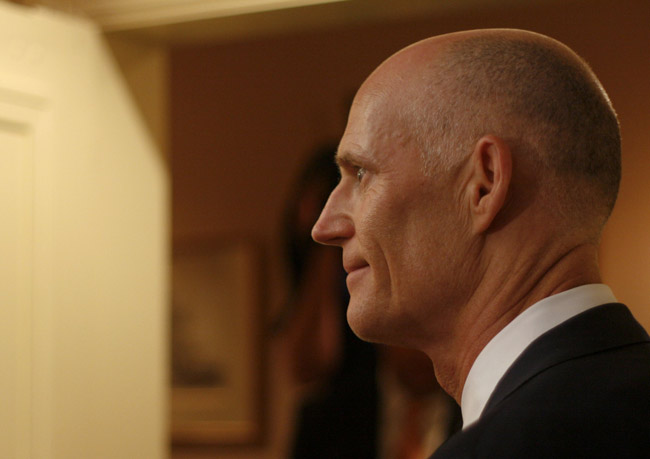
Wielding his veto pen more lightly than we he struck a record amount of spending authority last year, Gov. Rick Scott signed the budget for the coming fiscal year Tuesday that he boasted would increase education spending by $1 billion while making frugal use of taxpayer money.
But Scott hadn’t even left Cunningham Creek Elementary School in St. Johns County before education groups and others began downplaying the spending on schools as insufficient to make up for cuts during Scott’s first year in office, much less earlier reductions in classroom funding.
The education funding debate could play a role in the fall elections, when all 160 legislators will be up for re-election. Weighing in at a shade over $70 billion before Scott’s line-item vetoes, the spending plan is relatively austere aside from the increase for schools.
“This budget is an education budget,” Scott told a small crowd of sometimes squirming but mostly quiet elementary students at the school just across the county line from Jacksonville. Scott said in a morning radio interview before signing the bill that there was no particular significance to the choice of the school – simply that he was invited there.
The governor and lawmakers touted an additional $1 billion in state funding for schools, but districts and others have griped that most of the extra money will be gobbled up to pay for enrollment increases and the loss of income from other sources.
Senate President Mike Haridopolos, R-Merritt Island, said, however, that “by investing in education and jobs without raising taxes, the budget signed today benefits all of Floridians.”
But the Florida Education Association, the main teachers union, blasted the budget as “dismal.” Democrats also took shots at the plan.
“This budget is nothing more than the same shortsighted priorities of Florida Republicans that has put the special interests ahead of investing in education — while schools are left crumbling around our children,” Democratic Party Chairman Rod Smith said in a statement. “That is no way to lead.”
Scott took a few minutes at his budget signing to explain to the students how a bill becomes a law, but didn’t go through the intricacies of the line-item veto process or the $142.7 million in spending projects he slashed from the plan.
That was a sharp decrease from the $615 million in spending Scott nixed last year, even when accounting for the fact that almost $300 million of the 2011 vetoes came from an accounting sleight of hand. Scott said that the smaller number was in part the result of supporters of those projects giving him better information.
In other cases, Scott extracted promises from those receiving the funds. Sarasota County assured the state it would get $12.5 million in additional sales tax receipts as a result of a rowing center funded by the budget — or it would return the money.
“I treated some projects just like we treat economic development,” Scott said. “If we don’t get the return they said they were going to get, they’ll give us the money back.”
The governor also conceded that lawmakers were able to “convince” the onetime outsider governor to give some projects a second look instead of axing them.
But Scott still struck dozens of transportation and cultural programs, from $500,000 for the Bay of Pigs Museum vetoed – on the 51st anniversary of the Bay of Pigs invasion on April 17 in 1961 – to $1 million to renovate and expand a neighborhood center in the Parramore area of Orlando, to three line items totaling almost $1.4 million for the Panhandle Area Educational Consortium.
Scott also said he had asked state universities to limit tuition increases to 5 percent and look for new efficiencies in how they operate. The governor did not specify whether he had an agreement with the Board of Governors, which can authorize tuition hikes of up to 15 percent, to rein in the increase.
The governor has said he’s not eager to raise the “cost of living,” including tuition bills, for Floridians.
“I’m very comfortable that the Board of Governors will do that sort of review and the right thing will happen,” he said.
Scott didn’t address the fate of the University of South Florida’s Lakeland campus, which is scheduled to become the state’s 12th university. Scott is still considering a measure that would accelerate and overhaul the board’s plan for creating an independent Florida Polytechnic University.
The governor said he signed money in the budget dedicated for the project, but only to make sure that USF was fully funded regardless of what happens to the independence bill, which must be signed or vetoed by the end of the week.
–Brandon Larrabee, News Service of Florida





























Leave a Reply